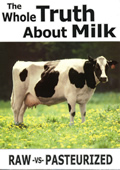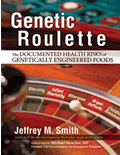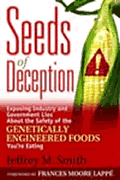GOVERNOR SEBELIUS MUST VETO KANSAS LEGISLATION
By
Jeffrey Smith
April 23, 2009
NewsWithViews.com
If Governor Sebelius wants to be the “new sheriff in town” as HHS Secretary, she can start before being sworn in by vetoing Kansas legislation promoting artificial bovine growth hormone (rbGH)—a dangerous legacy from an FDA hijacked by corporate interests.
This controversial drug, known as “Crack for Cows,” revs up animal metabolism to increase milk production. Banned in most other industrialized countries, consumers’ health concerns are now pushing it out of the US as well. Over the last three years, Wal-Mart, Starbucks, Dannon, Yoplait, and more than half of the nation’s top 100 dairies have committed to stop using it for some or all of their products. But in a gift to Ely Lilly, the drug’s manufacturer, Kansas lawmakers passed a bill last week with misguided labeling requirements, making it difficult for all national brands to inform consumers that their product does not use rbGH.
The law requires sizable disclaimers stating, “The FDA has determined that no significant difference has been shown between milk derived from rbGH-supplemented and non-rbGH-supplemented cows.” The problem is: it’s not true.
According to studies acknowledged by the FDA, milk from treated cows has higher levels of pus, antibiotics, growth hormone, and Insulin-like growth factor 1 (IGF-1). It is the IGF-1 that has the medical community up in arms. The American Nurses Association called for the elimination of rbGH in dairy production. The past president of the American Medical Association urged hospitals to serve only rbGH-free milk (over 160 hospitals have pledged to do so). And schools nationwide are banning the drugged milk as well.
Cancer link to milk hormone
IGF-1 is a risk factor for cancer. A Lancet study showed that pre-menopausal women below age 50 with high levels of IGF-1 are seven times more likely to develop breast cancer. A study in Science found that men with high IGF-1 levels are four times more likely to get prostate cancer. IGF-1 is implicated in lung and colon cancer.
It also causes higher rates of fraternal twins. According to research published in the Journal of Reproductive Medicine, the most likely reason why the US increase in fraternal twins is twice that of the UK is that our cows use rbGH and theirs don’t.
The link between rbGH and cancer was one of the topics to be revealed in a 1997 four-part news series by a Tampa-based Fox TV station. But when Fox received letters from the attorney of then drug-maker Monsanto threatening “dire consequences for Fox News,” the show was postponed indefinitely. Investigative reporters who created the series later testified that they were offered hush money to leave the station and never speak about the story again. They declined.
Science in the Corporate Interest
While evaluating rbGH for the FDA, veterinarian Richard Burroughs demanded more safety testing. He says he was then fired for holding up the drug’s approval. Burroughs was later reinstated by the courts. Other FDA whistle-blowers wrote an anonymous letter to Congress, complaining of fraud and conflict of interest at the agency.
FDA documents indicated that studies designed to show how rbGH injections did not interfere with animal fertility, secretly used cows that were pregnant prior to injection. For evaluating whether hormones were destroyed during pasteurization, researchers pasteurized milk 120 times longer than normal.
Margaret Miller, who worked for Monsanto for five years doing research on rbGH, became an FDA branch chief in a division that reviewed her own research. Susan Sechen, contracted by Monsanto to do rbGH research, later became the FDA’s primary review officer for the drug. Michael Taylor was Monsanto’s former attorney and later their vice president. In between, he was in charge of FDA policy when rbGH was approved. Not only did his policy not require mandatory labeling of milk that used rbGH, Taylor wrote a paper urging companies who labeled their products as “rbGH-free” to also add the FDA disclaimer above. It was only a suggestion, but the Kansas legislature now wants to make it law.
In Canada, where rbGH is banned, government scientists wrote a scathing critique of the FDA’s evaluation of the drug, showing how the approval process was flawed. But in 1998, they testified before their Senate that they too were being pressured by superiors to approve rbGH, even though they believed it was unsafe. They said that documents were stolen from a locked file cabinet and that Monsanto offered them a bribe of $1-2 million to approve the drug. (A Monsanto representative told national Canadian television that the scientists misunderstood an offer for research money.)
|
Subscribe to the NewsWithViews Daily News Alerts! |
Kathleen Sebelius has the power to finally end this country’s dealings in high-risk milk drugs and its associated history of corporate manipulation—first as Governor by vetoing bill HB2121 and then as HHS Secretary by banning it. It’s your move, Madam Sheriff.
















